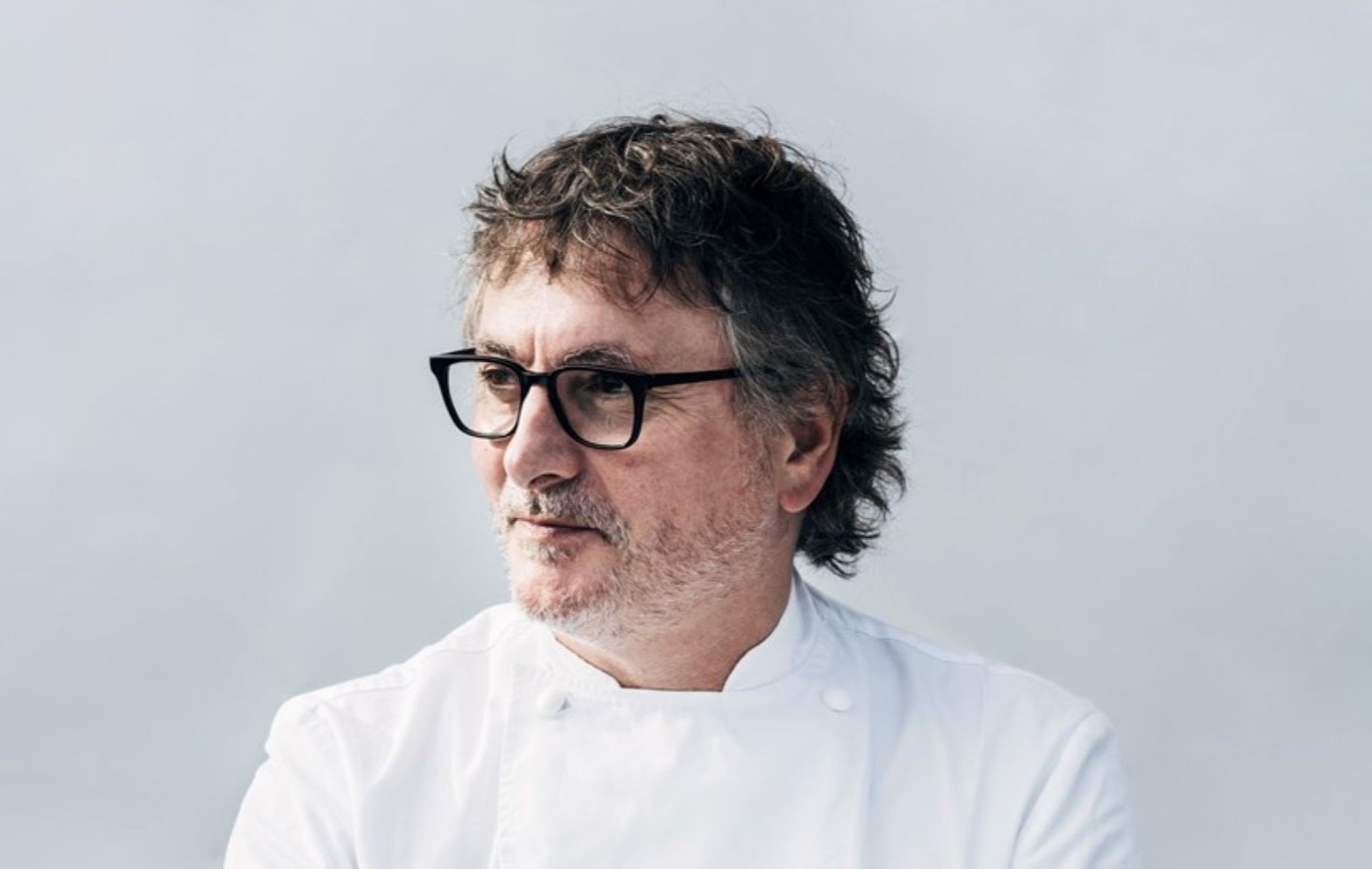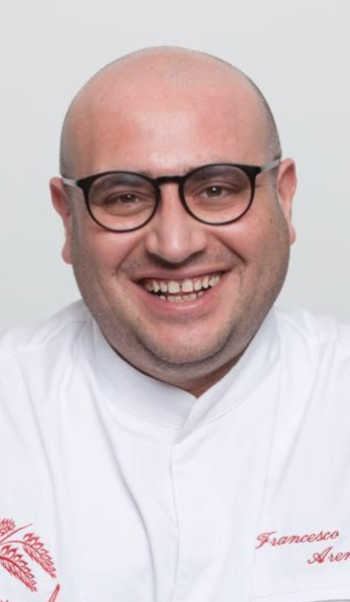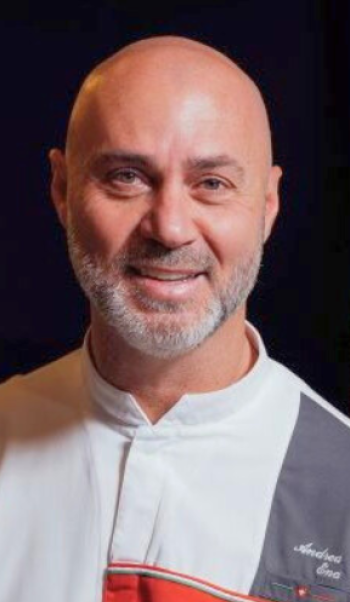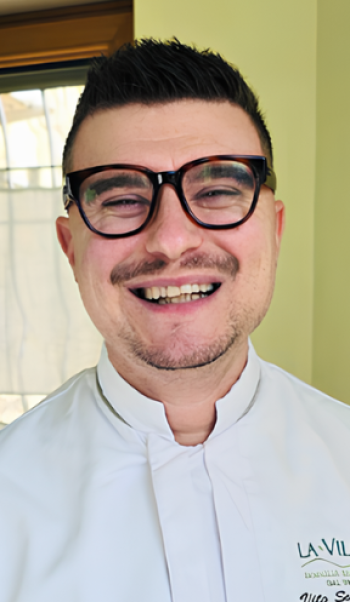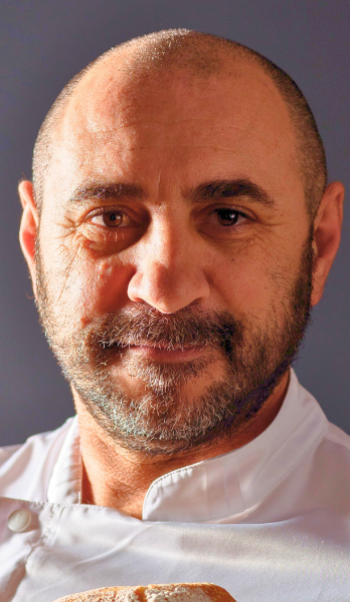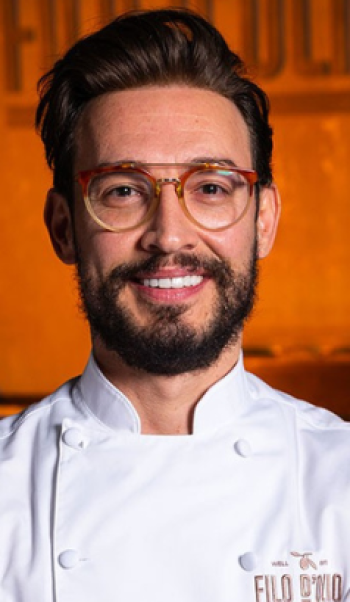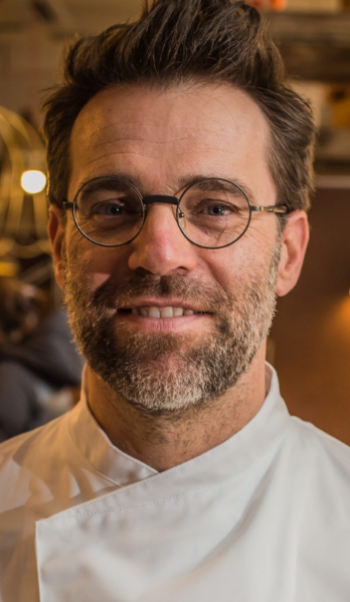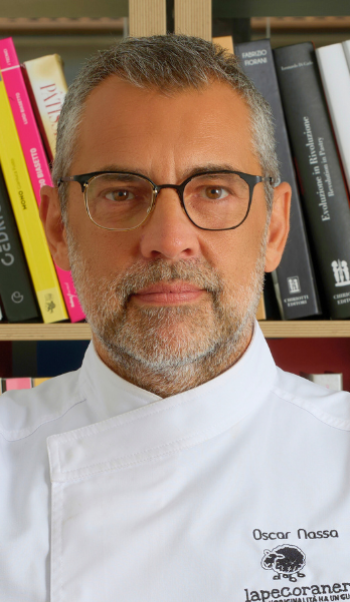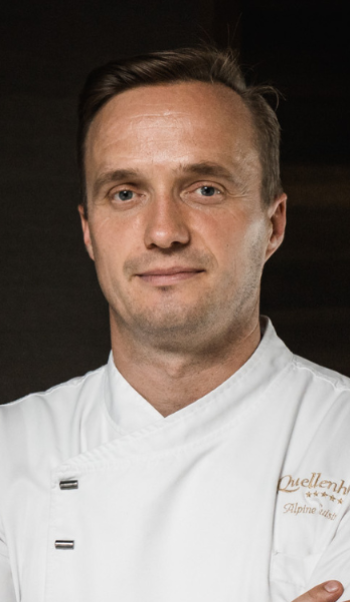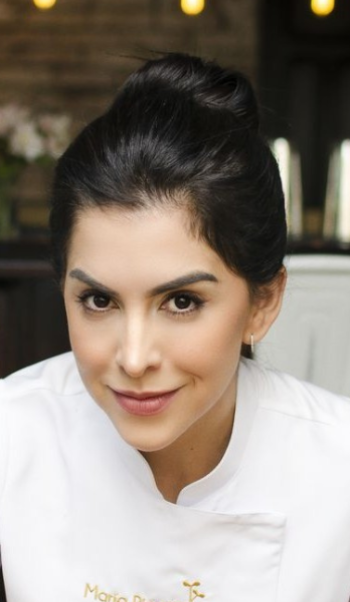Few chefs have contributed to pushing the boundaries of the gastronomic experience like Andoni Luis Aduriz: in his kitchen, the technical fury inspired by Adrià merges with the sensitive naturalism of the ideal master Michel Bras, while taste and disgust provocations, with the collaboration of multidisciplinary minds, generate disruptive sensations that don't necessarily have to be pleasing.
Andoni Luis Aduriz was born in 1971 in San Sebastian, a city that has always been the beating heart of Basque cuisine. He is the son of a mechanic who specialized in tuning musical instruments, and a homemaker mother with sewing training, passionate and expert in home cooking. It was his mother who chose the local hotel institute for him, as a way to repay his parents' financial efforts. Everything changed when he failed the admission exam. His parents saw it as a tragedy, but the change of class, along with the encounter with peers who were truly passionate about gastronomy, sparked something within him, and he realized that cooking could be a complete means of expression.
While studying, Andoni started working in an unpretentious pizzeria trattoria, and later joined the renowned chef Hilario Arbelaitz. After completing his studies, he attended a sommelier course in Barcelona before working with the founders of Nueva Cocina Vasca, Juan Mari Arzak and Pedro Subijana. However, the life-changing encounter came when he met Ferran Adrià, who literally blew his mind during his time at elBulli from 1993 to 1994. "What left a mark on me was the rigor and the importance Ferran gave to details. The integrity was incredible. There was a rare commitment and set of values." On the stylistic front, the ideal guidance of Michel Bras weighed heavily, having discovered his naturalistic approach through a book without direct professional contacts. Bras struck him with his naturalism, fostering new alchemies.
But there was another excellent Basque chef vying for Andoni's attention: Martin Berasategui. While still at elBulli, Berasategui offered him a job, and Andoni finally joined him as the chef of his self-named restaurant. It was a very happy period for him, filled with great satisfaction. Until he and a colleague decided to start something of their own. They discussed it with Berasategui, and to their surprise, he proposed a joint venture for new projects. They opened a small café, Bodegon Alejandro, and made their mark at the Guggenheim. In 1998, Mugaritz finally came to life, an idyllic restaurant immersed in nature, celebrating a quarter-century and named after the border ("muga") between two places and the oak tree ("haritza") that has watched over it for two centuries.
Andoni compares his Mugaritz to a bumblebee that, according to the laws of physics, should not be able to fly. But he didn't know that and he succeeded. Right from the start, his proposal was intolerant of compromise, boldly avant-garde, and often provocative. Yet, it overcame the toughest challenges, from the fire in 2010 to the pandemic closures. The deepening of the concept went hand in hand with the study of new techniques and an openness to stimulating interdisciplinary ideas. The first MICHELIN star arrived in 2000, the second in 2005, and while elBulli prepared to close its doors, the work at the research and development laboratory intensified, capturing the attention of the world in search of innovation. Over four months of intense work, with the restaurant doors closed, they developed the menu for the following year, which was offered as a preview to a selected audience of intellectuals. It resulted in groundbreaking techniques and concepts, from contemporary vanitas bubbles to reflections on tastelessness as a mode of flavor, and even an exploration of deeply ingrained food taboos, such as mold and anthropophagy.
But that's not all. In line with his idea of socializing cuisine, Andoni Luis Aduriz is one of the minds behind the Basque Culinary Center, a research and training center for future chefs. He is also involved with the Tufts Nutrition Council at Tufts University, which brings together eminent personalities from various food specialties. He teaches courses at Harvard University, the Massachusetts Institute of Technology, the University of the Basque Country, the University of Deusto, and the Alain Ducasse training center in France, as well as at The Culinary Institute of America in the United States. He participates in scientific conferences, such as the Conference on Applied Cognitive Psychology organized by the Basque Center on Cognition, Brain, and Language, or the Conference in Primary Care. He is also a speaker at the department of Health Sciences at the University of Alicante, the International Congress of Biochemistry and Molecular Biology, and El futuro X venir, a series of conferences organized by the Fundación Telefónica. He even engages in theatrical performances with the Fura dels Baus, embodying a concept of total creativity that continues to stir the stagnant waters of post-avant-garde.
